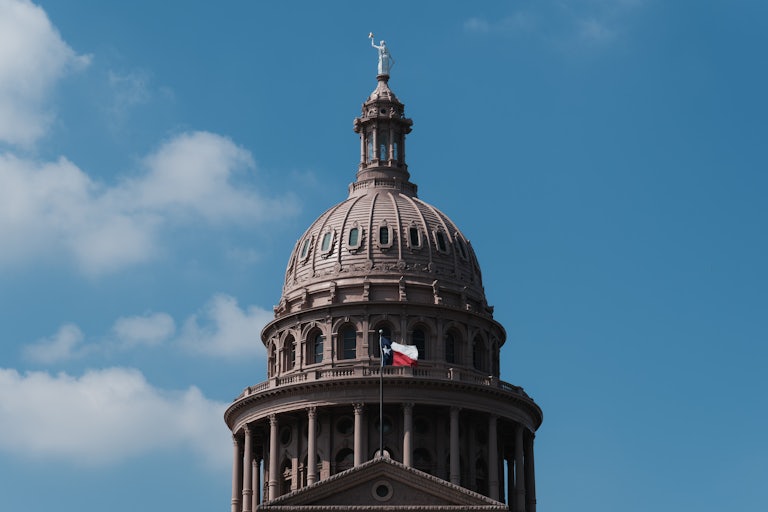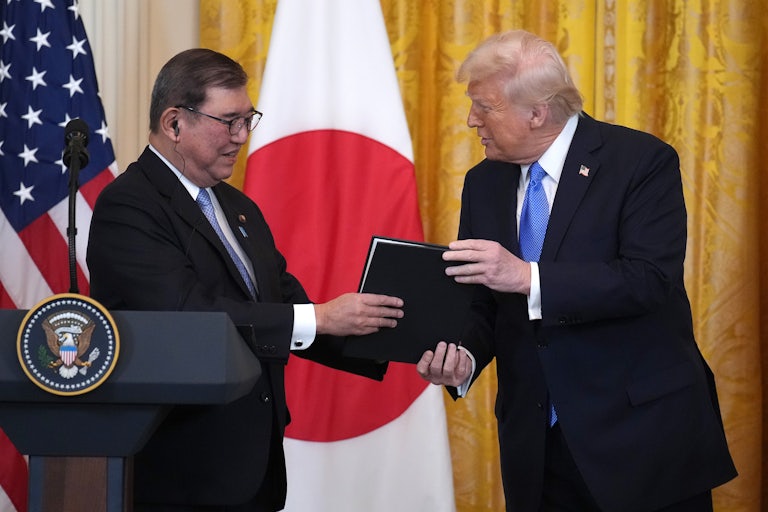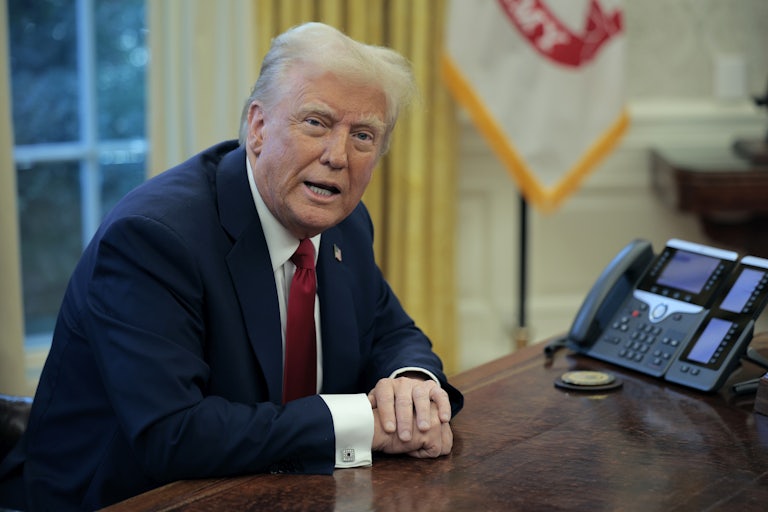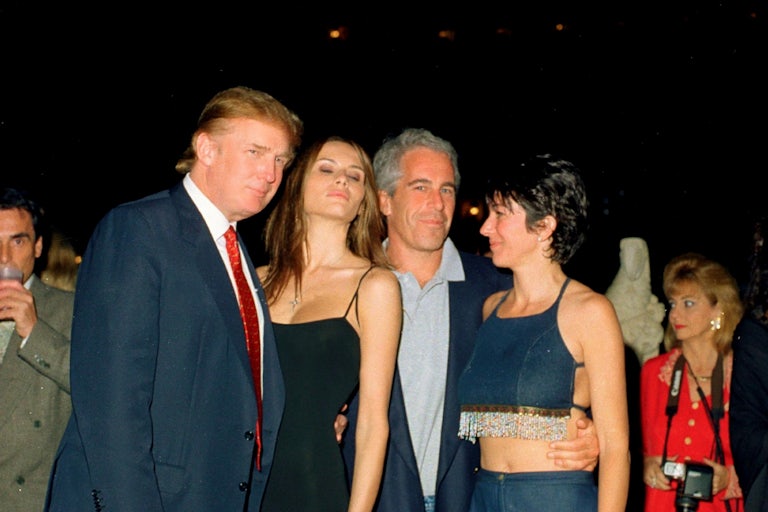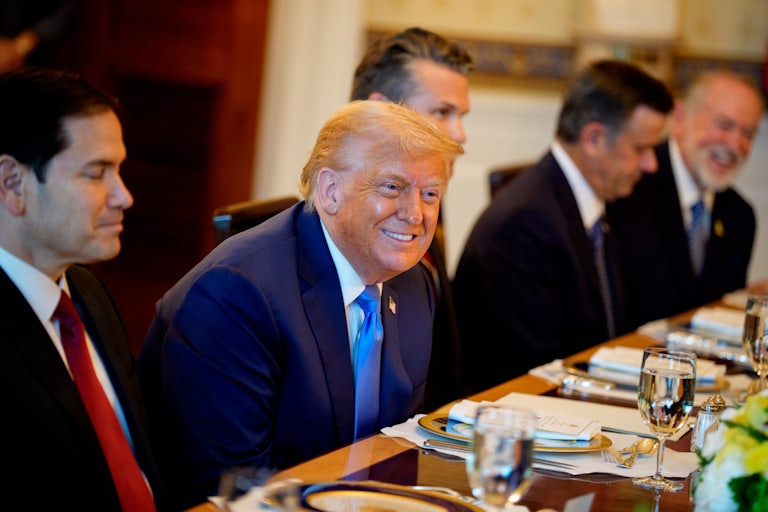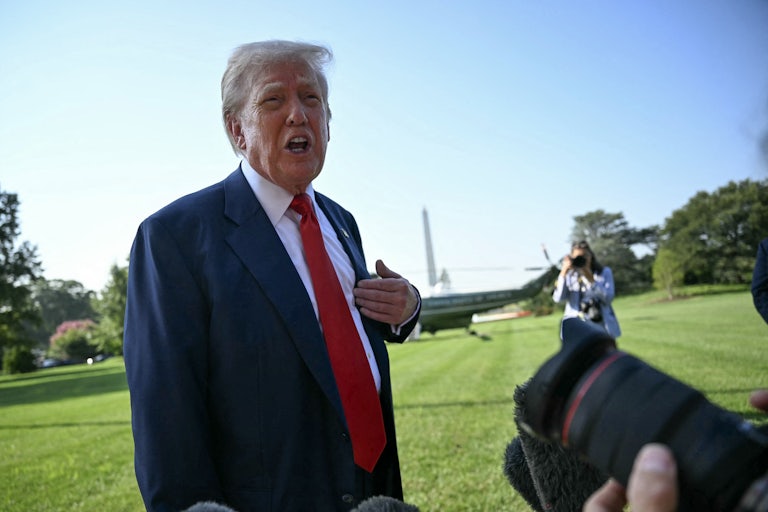Trump Privately Losing It as Epstein Scandal Fractures His MAGA Base
Those close to the president say he is enraged that the story has continued for this long.
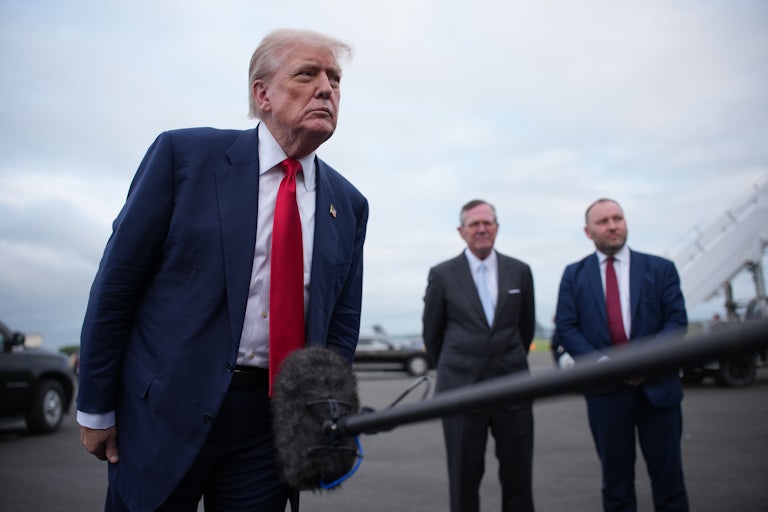
The Washington Post reports that President Trump is infuriated that the Epstein files are still dominating headlines, even as he throws distraction after distraction to the public.
Two sources close to the president also told the Post that the rift between the Justice Department and the FBI is just as bad as it looks.
“This is a pretty substantial distraction,” said one person close to the situation. “While many are trying to keep the unity, in many ways, the DOJ and the FBI are breaking at the seams. Many are wondering how sustainable this is going to be for all the parties involved—be it the FBI director or attorney general.”
This is all of course completely self-inflicted, as the Trump administration has failed to deliver on massive promises on the Epstein files and then angering its base even more as it attempts to cover its tracks.
“They completely miscalculated the fever pitch to which they built this up,” former Reagan Justice Department official Stephen A. Saltzburg told the Post. “Now, they seem to be in full-bore panic mode, trying to change the subject and flailing in an effort to make sense of what makes no sense.”
In the midst of the chaos, Trump is hesitant to fire people like Attorney General Pam Bondi or Deputy FBI Director Dan Bongino, even as both have badly contradicted themselves on Epstein, because he “does not want to create a bigger spectacle by firing anyone,” a source close to the situation said.
The diversions have been clear and obvious. A rushed Martin Luther King Jr. files release against the will of his family, a trade deal with the European Union, unsubstantiated accusations of treason lobbed at his ultimate nemesis, former President Obama—none of which have succeeded in actually getting his base off the trail of one of their most important issues.
“We had the Greatest Six Months of any President in the History of our Country, and all the Fake News wants to talk about is the Jeffrey Epstein Hoax!” Trump wrote on Truth Social last week, one of many questionable posts he made about the deceased sex offender and financier with whom he was close with.
The wagons are beginning to circle now, as the House is expected to subpoena the Epstein files when they return next month, and have already subpoenaed imprisoned Epstein accomplice Ghilaine Maxwell to testify before Congress in August.
